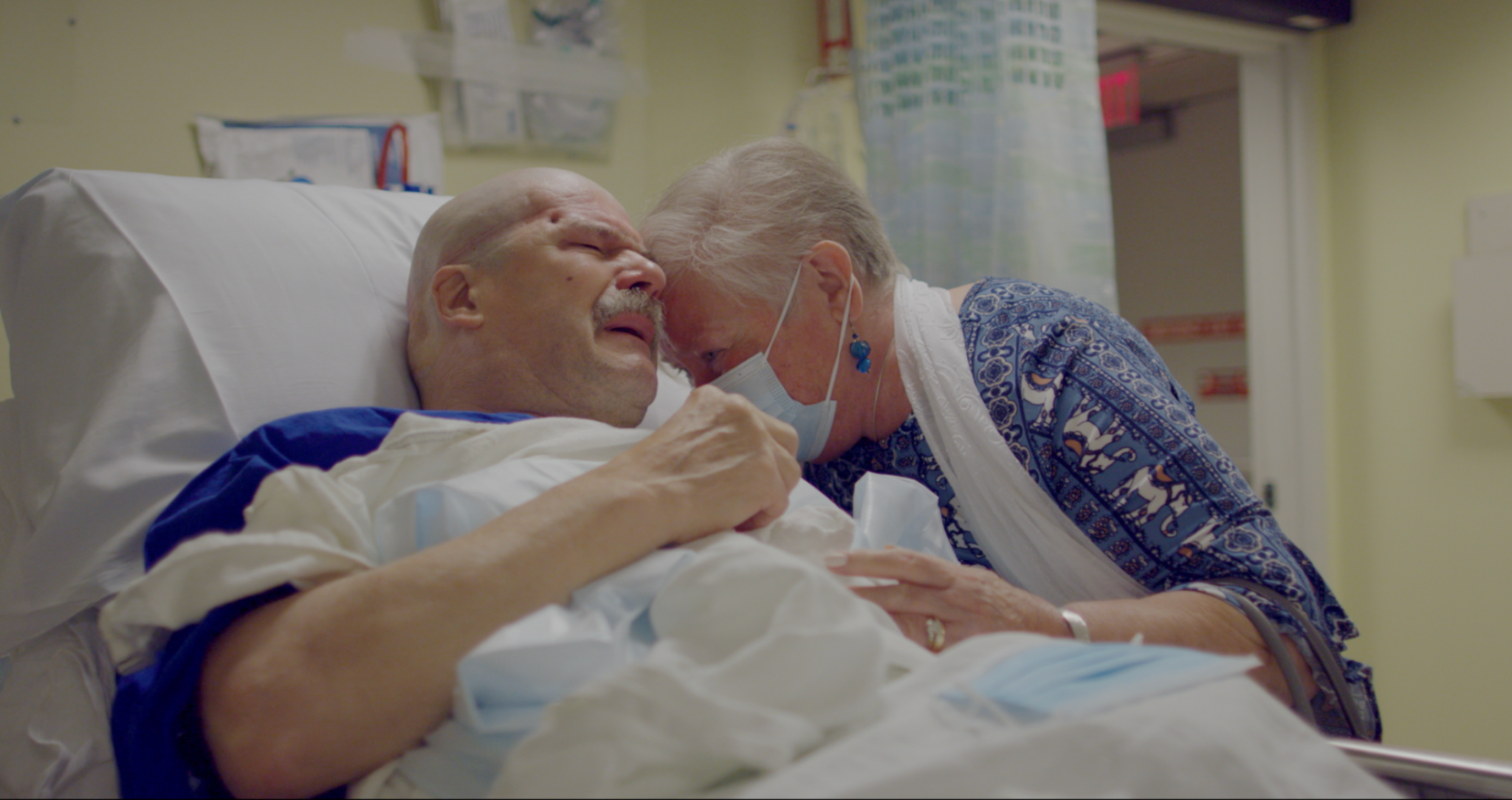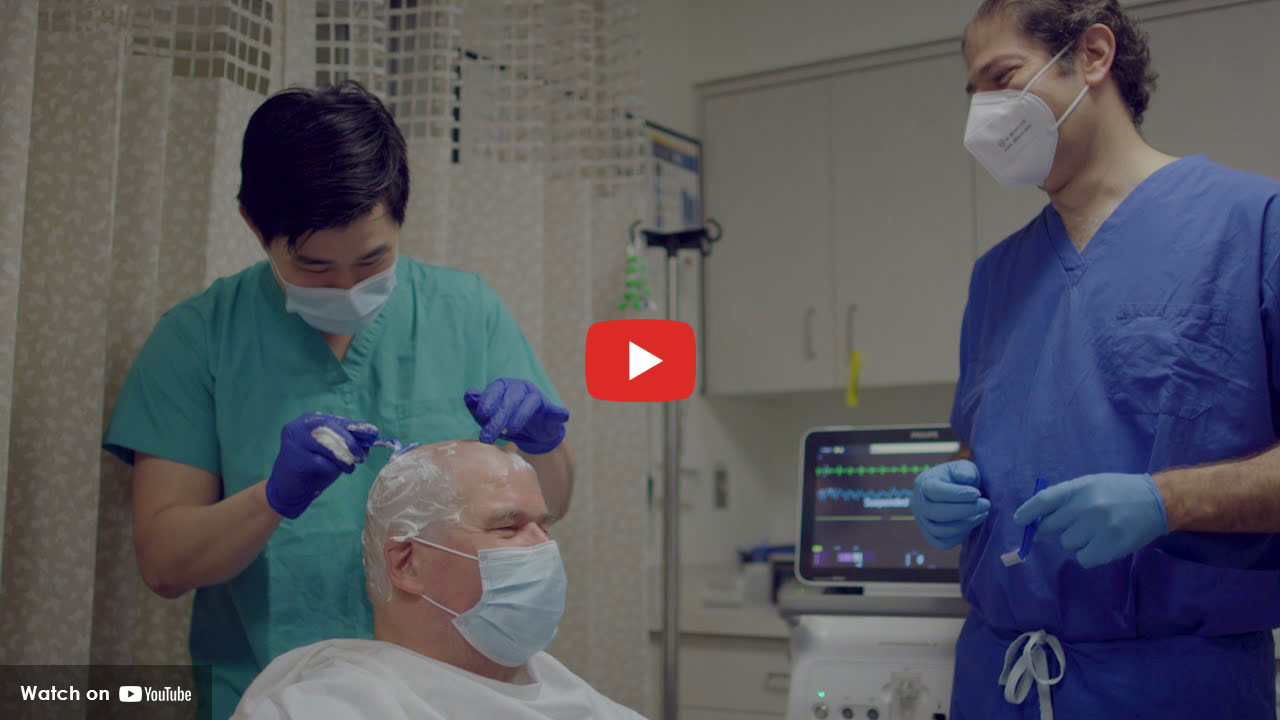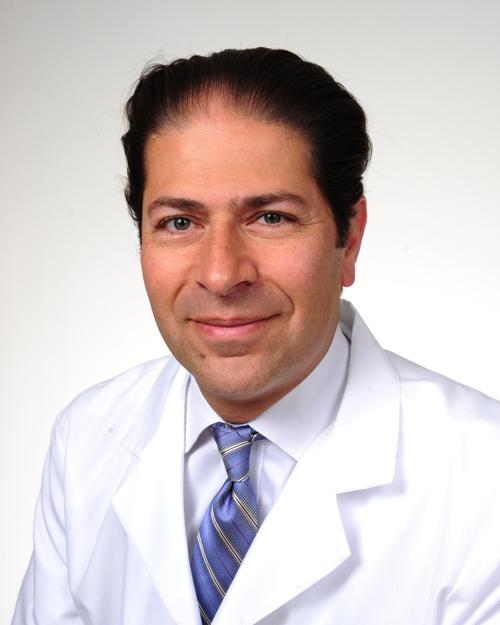Groundbreaking Tremor Treatment Reaches New Jersey

August 26, 2021
Dezso Balint relied on steady hands every single day of his 45-year career in construction. But after retiring several years ago, the 70-year-old grandfather of two developed tremors so violent he could no longer sign a check or drive a car.
Medications didn’t work well to control his essential tremor, a nervous system disorder characterized by involuntary and rhythmic shaking. Month after month, Dezso’s condition progressively worsened, making even feeding himself an impossible task. “He was very sad, emotional and depressed,” recalls his wife, Anna.
That all changed in June 2021, when neurosurgeons at Hackensack University Medical Center began treating Dezso and other tremor patients with a leading-edge therapy that can erase their disabling shaking, restoring their independence and confidence. Hackensack recently became the first and only hospital in New Jersey—and one of only a few in the United States— to offer a noninvasive, MRI image-guided technology called focused ultrasound.
The treatment is approved by the U.S. Food and Drug Administration (FDA) for essential tremor or tremor-dominant Parkinson’s disease. About 10 million Americans cope with essential tremor, while another 1 million have Parkinson’s.
“Tremor is not a terminal condition, but it can be very debilitating,” Hooman Azmi, M.D., chief of the Center for Functional and Restorative and Image-guided Neurosurgery at Hackensack. “People who suffer tremors can’t hold a cup of coffee without spilling it. Sometimes they have a hard time brushing their teeth or buttoning shirts. Cognitively they’re fine, but they need help performing many daily activities.”
How Focused Ultrasound Works
Medications are the first-line treatment for essential tremor and Parkinson’s, but they don’t always work. Even when they do, some patients experience burdensome side effects such as sleepiness, brain fog, dry mouth or light-headedness that make it intolerable to continue taking the drugs, notes Dr. Azmi, also an associate professor of neurosurgery at Hackensack Meridian School of Medicine.
“Then we start to think about alternate treatment options, one option is surgery called deep brain stimulation, which works extremely effectively—but it is surgery,” Dr. Azmi says. “Focused ultrasound is an incredibly good option for patients having medication side effects who would otherwise be very good candidates for surgery but don’t want to undergo surgery. Now we have the option of non-invasively treating the tremor with just sound waves.”
Focused ultrasound works by using sound waves that travel through the skin and skull, and the procedure can be performed without any incisions. MRI imaging guidance helps doctors precisely focus the sound waves on a targeted area deep in the brain. These sound waves create heat that disrupts the abnormal brain signals that cause tremor.
The focused ultrasound system includes safety features that measure temperature changes in the skull and reduce the risk of damage to surrounding brain tissue.
“We know there are circuits in the brain that give rise to tremor,” Dr. Azmi explains. “With the use of MRI to see the areas involved in that circuit, we aim sound waves onto one particular spot we know will have the best response. If we’re getting positive results, we make the effect of the sound waves permanent.”
Changing the Lives of Patients
Since surgical incisions aren’t involved, focused ultrasound treatment boasts several added benefits:
- No overnight hospital stay is typically needed.
- Patients can quickly return to everyday activities.
- Potential complications are minimal and typically short-term, including balance issues or a pins-and-needles sensation in the hands, face or tongue.
Dezso, whose right-hand tremor virtually disappeared, hopes to also have his left-hand tremor treated in the near future. This will involve aiming sound waves toward a slightly different spot in his brain.
The Paramus, New Jersey, father of two grown sons weeps when recalling the stark improvement in his right hand within moments after his focused ultrasound treatment was completed. Before the three-hour procedure, Dezso was asked to write the word “hope” on a piece of paper. He was then asked to repeat the task just afterward.
The first handwriting attempt was barely legible, while the second far clearer to read—and much easier to write. He’s also back to easily signing checks, driving and doing jobs around the house that require hand dexterity.
“The difference was enormous right away,” Dezso says. “It was day and night. It’s a miracle what this procedure did for me.”
Most hand tremor patients who undergo focused ultrasound can expect immediate and life-altering results like Dezso did.
“Only 40 centers in the world have the ability to offer this incredible technology to patients,” Dr. Azmi says. “It really emphasizes the expertise and innovation at Hackensack Meridian Health for the treatment of neurological disorders, particularly movement disorders.”
See Dezso's progress after his treatment
Next Steps & Resources:
- Meet our source: Hooman Azmi, M.D.
- To make an appointment with Dr. Azmi or a doctor near you, call 800-822-8905 or visit our website.
The material provided through HealthU is intended to be used as general information only and should not replace the advice of your physician. Always consult your physician for individual care.
Find a doctor near me
Clinical Contributors
How to Beat Brain Fog

Beat brain fog. Dr. Duncan offers tips for improved focus and memory. Learn strategies for better sleep and cognitive health. Call 800-822-8905.
Is Parkinson’s Disease Hereditary?

Is Parkinson's Hereditary? Learn about genetic factors, risk, and next steps from Dr. Hanna. JFK Medical Center offers resources and support.
Find a doctor near me

Brain Tumor Patient Looks at the Bright Side of Life
Following surgery and treatment for a high-grade brain tumor, Daniel Mirdala is grateful for extra days and time with his family.

7 Warning Signs of a Brain Tumor
7 Brain Tumor Warning Signs. Dr. Danish explains headaches, seizures, and other symptoms. Learn more & schedule an appointment.

Doctors Explain Fluorescent Guided Brain Surgery
Fluorescent Guided Brain Surgery: Drs. Maggio & Kazmi explain this advanced technique for brain tumor removal at Jersey Shore University Medical Center. Learn more & schedule an appointment.

When Memory Loss Is Normal - and When It Might Mean Something More Serious
Forgetfulness is something all of us experience throughout our lives, especially as we age.


